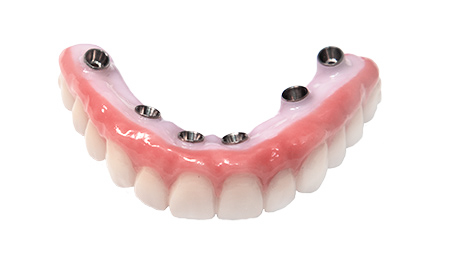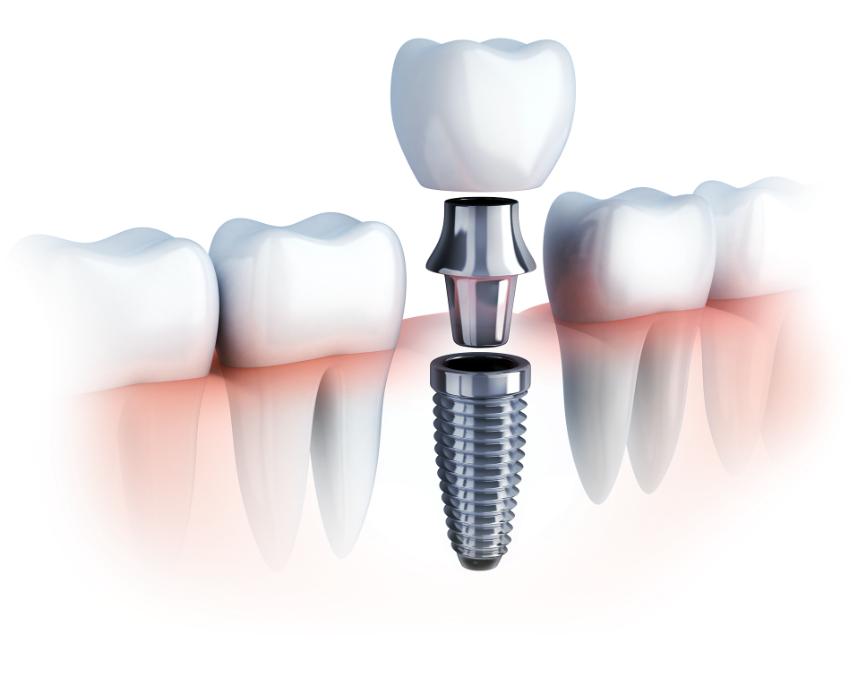Getting The Dental Sense To Work
Getting The Dental Sense To Work
Blog Article
The Ultimate Guide To Dental Sense
Table of ContentsTop Guidelines Of Dental SenseThe Single Strategy To Use For Dental SenseRumored Buzz on Dental SenseTop Guidelines Of Dental Sense
are medical tools surgically dental implanted right into the jaw to recover a person's capacity to chew or their appearance. They supply support for artificial (fake) teeth, such as crowns, bridges, or dentures. When a tooth is shed because of injury or condition, a person can experience complications such as rapid bone loss, defective speech, or changes to eating patterns that lead to pain.Oral implant systems contain an oral implant body and dental implant abutment and may also consist of an abutment addiction screw. Root canal procedure. The dental implant body is operatively placed in the jawbone instead of the tooth's origin. The oral implant joint is usually connected to the dental implant body by the joint fixation screw and expands with periodontals right into the mouth to support the affixed synthetic teeth
(https://www.find-us-here.com/businesses/Dental-Sense-Miami-Florida-USA/34200016/)Structure of The Dental Implant System selecting oral implants, speak with your oral provider concerning the potential advantages and threats, and whether you are a candidate for the treatment. Things to think about: Your total health is a crucial variable in identifying whether you are an excellent candidate for dental implants, exactly how long it will take to heal, and how much time the dental implant might remain in location.
Cigarette smoking might affect the recovery process and reduce the long-term success of the implant. The healing procedure for the dental implant body might take several months or longer, during which time you normally have a momentary abutment instead of the tooth. the oral implant procedure: Meticulously adhere to the dental hygiene guidelines offered to you by your dental service provider.
Dental Sense - Questions
Implant failing can cause the need for another procedure to fix or replace the implant system. Restores the capability to chew Recovers aesthetic look Aids keep the jawbone from reducing as a result of bone loss Maintains the health and wellness of the surrounding bone and gum tissues Assists keep nearby (neighboring) teeth stable Improves lifestyle Damage to bordering natural teeth throughout dental implant positioning Injury to the surrounding tissues during surgery, such as sinus perforation Injury during surgical procedure (as an example, crack of surrounding jawbone) Inadequate feature, such as feeling like the teeth do not bite together usually An experience that the tooth is loosened or turning in place arising from an abutment screw loosening up Implant body failing (looseness of the dental implant body) as a result of systemic infection, which may be most likely in patients with unchecked diabetics issues because of regional infection in bone and periodontals sustaining the dental implant body due to postponed healing, which may be more probable in individuals who smoke Difficulty cleansing the gum tissues around the dental implant, resulting in inadequate dental health Unattended periodontal illness Post-surgical numbness due to nerve impingement or damage Constantly notify health and wellness care companies and imaging service technicians that you have dental implants before any magnetic resonance imaging (MRI) or x-ray procedures.
FDA is not familiar with any type of unfavorable occasions reported for MRI or x-ray procedures with oral implants. Oral implants systems are usually made of products that comply with international consensus standards of the International Company for Standardization (ISO) or ASTM International. These standards have details of what makes a secure product.

An oral implant is a framework that changes a missing tooth. With screw-like tools, the surgeon inserts an implant into the jawbone, and it acts as a support for a fabricated tooth, called a crown. A tool called a joint links the fabricated tooth to the dental implant. The crown is custom-made to fit the individual's mouth and match the color of their teeth.
What Does Dental Sense Mean?
Some individuals are not eligible for oral implant surgery. It is for oral doctors to operate individuals with: acute illnessuncontrollable metabolic diseasebone or soft cells disease or infectionIf these concerns are fixed, a person can have the surgery. In, oral surgeons refrain from operating individuals with: If people with any of the above undertake oral implant surgery, there is a greater threat of the implant falling short.

Dental implant surgery is a tailored process. Give you time to recover. Affix the article and final crown, bridge or denture.
Next off, your surgeon will very carefully position the dental implant right into your jaw. If your implant is near the front of your mouth, your dental professional will make a temporary tooth for you to use till you heal.
The Basic Principles Of Dental Sense
Your company can inform you what to expect in your situation. Throughout the recovery stage, your jawbone must fuse to the dental implant. This process, called osseointegration, is critical for security and long-lasting success. This process can take anywhere from three to 9 months. In some instances, it may take much longer.
Once your dental implant heals, your dental expert can affix the abutment (tiny connector blog post) and your last restoration (crown, bridge or denture). This typically takes concerning one hour to complete and may call for a second minor surgical procedure. You should not really feel any type of pain during your oral implant procedure due to the fact that your company will utilize drug to numb your gum tissues.
Report this page